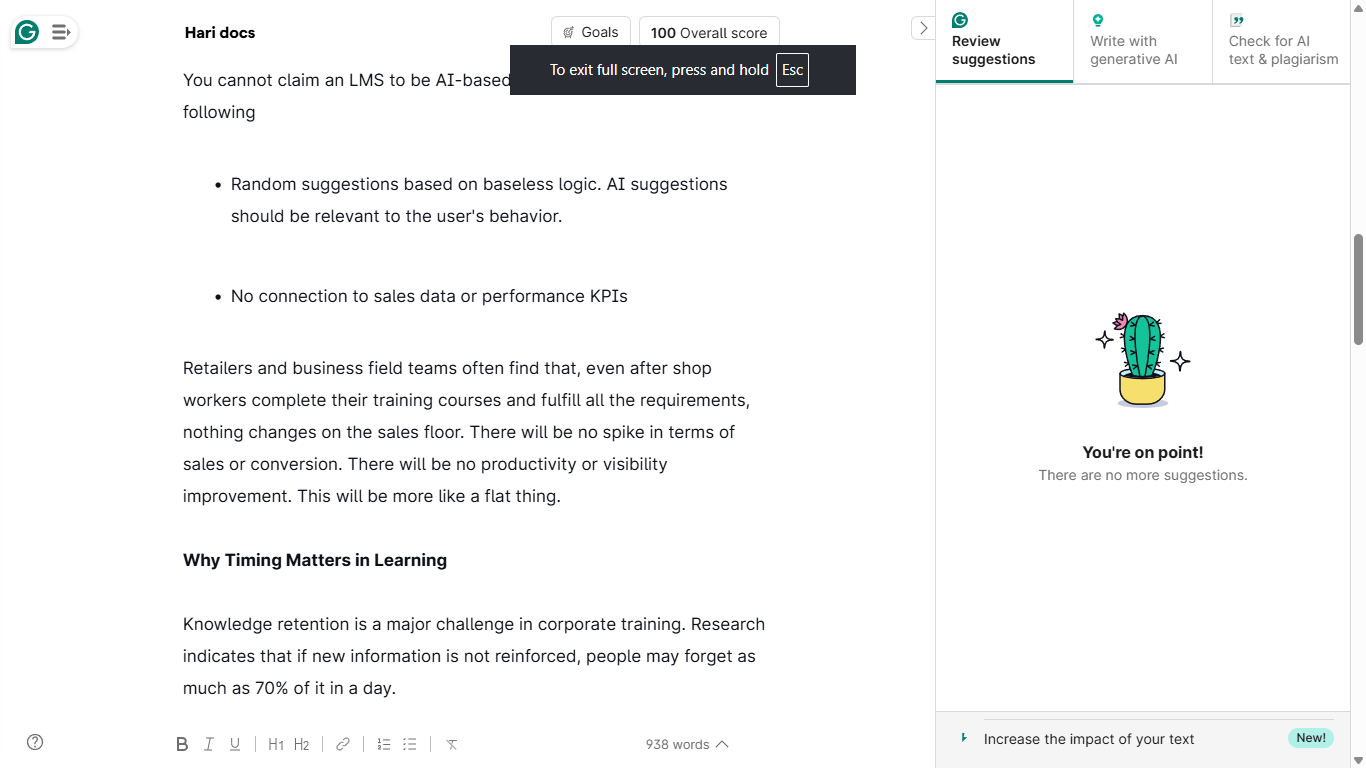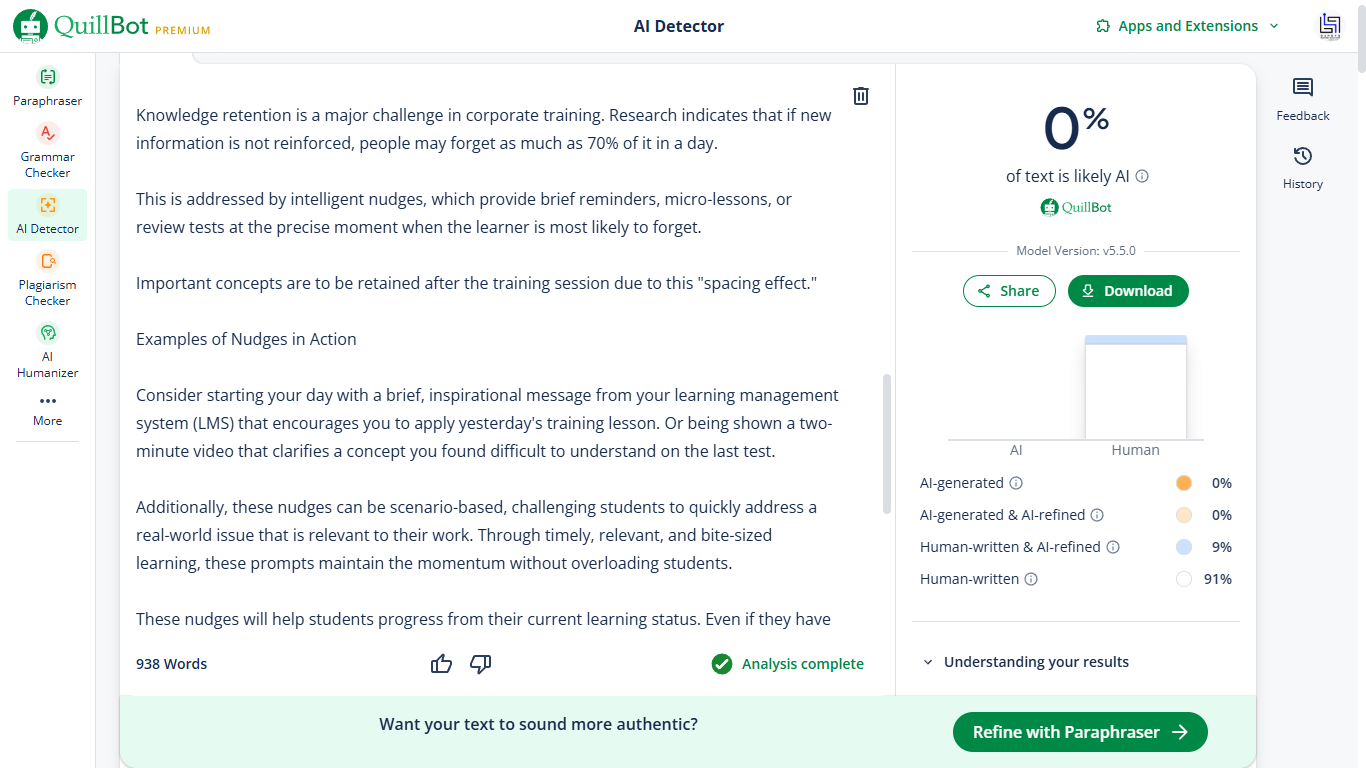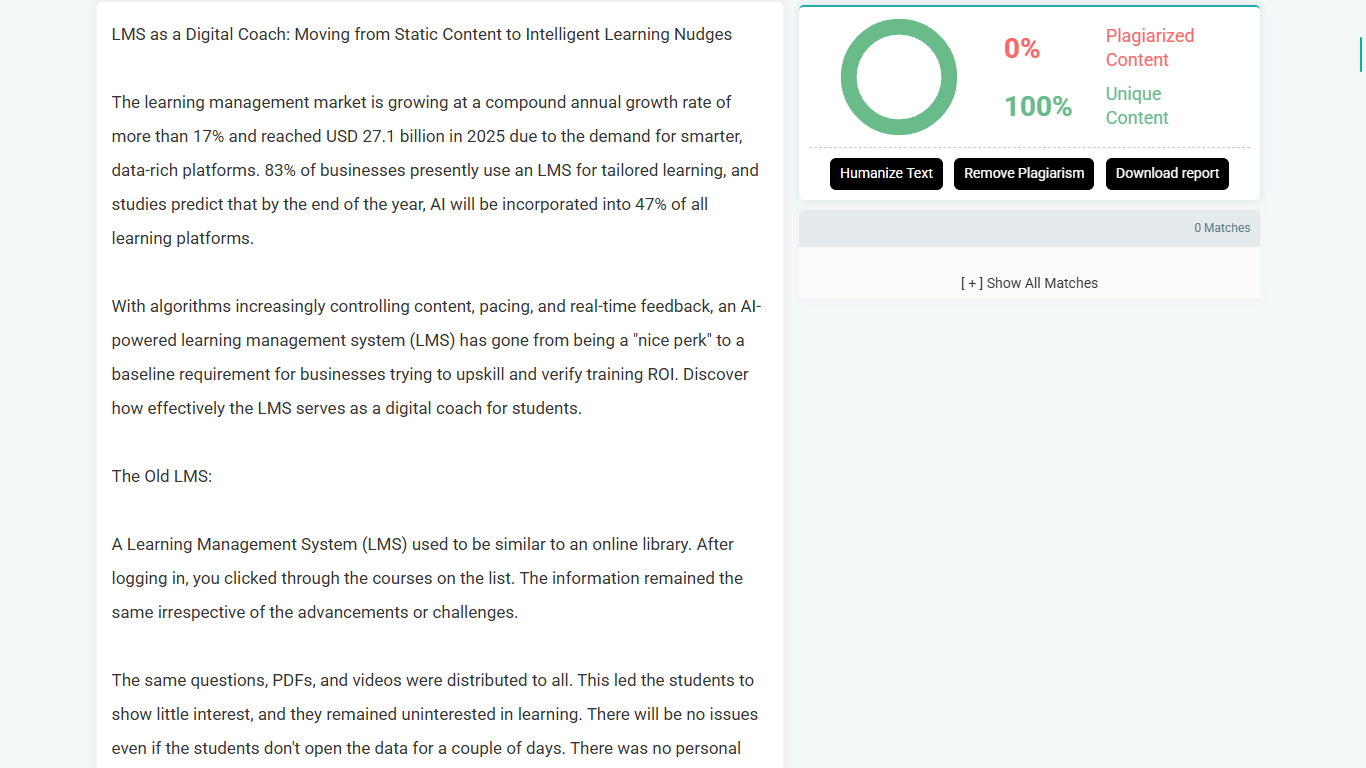LMS as a Digital Coach: Moving from Static Content to Intelligent Learning Nudges
The learning management market is growing at a compound annual growth rate of more than 17% and reached USD 27.1 billion in 2025 due to the demand for smarter, data-rich platforms. 83% of businesses presently use an LMS for tailored learning, and studies predict that by the end of the year, AI will be incorporated into 47% of all learning platforms.
With algorithms increasingly controlling content, pacing, and real-time feedback, an AI-powered learning management system (LMS) has gone from being a “nice perk” to a baseline requirement for businesses trying to upskill and verify training ROI. Discover how effectively the LMS serves as a digital coach for students.
The Old LMS
A Learning Management System (LMS) used to be similar to an online library. After logging in, you clicked through the courses on the list. The information remained the same irrespective of the advancements or challenges.
The same questions, PDFs, and videos were distributed to all. This led the students to show little interest, and they remained uninterested in learning. There will be no issues even if the students don’t open the data for a couple of days. There was no personal touch, and the learners could not meet the parameters they yearned for.
The Rise of the Digital Coach
AI LMS platforms are starting to resemble personal trainers. They keep tabs on your learning patterns and provide real-time coaching. They may send you a polite reminder if you haven’t checked in for a week. They recommend advanced materials if you’re performing well.
This will give the learners the feel of being taken care of. As a result, they will be able to focus completely on their study progress without getting distracted. Because of this method, students’ interest level will be constant throughout the learning journey.
The AI LMS feels like it is walking beside you, offering the required support and assistance whenever needed.
What Should Not Be Considered as AI-based LMS
You cannot claim an LMS to be AI-based if it is more related to the following:
- Random suggestions based on baseless logic. AI suggestions should be relevant to the user’s behavior.
- No connection to sales data or performance KPIs
Retailers and business field teams often find that, even after shop workers complete their training courses and fulfill all the requirements, nothing changes on the sales floor. There will be no spike in terms of sales or conversion. There will be no productivity or visibility improvement. This will be more like a flat thing.
Why Timing Matters in Learning
Knowledge retention is a major challenge in corporate training. Research indicates that if new information is not reinforced, people may forget as much as 70% of it in a day.
This is addressed by intelligent nudges, which provide brief reminders, micro-lessons, or review tests at the precise moment when the learner is most likely to forget.
Important concepts are to be retained after the training session due to this “spacing effect.”
Examples of Nudges in Action
Consider starting your day with a brief, inspirational message from your learning management system (LMS) that encourages you to apply yesterday’s training lesson. Or being shown a two-minute video that clarifies a concept you found difficult to understand on the last test.
Additionally, these nudges can be scenario-based, challenging students to quickly address a real-world issue that is relevant to their work. Through timely, relevant, and bite-sized learning, these prompts maintain the momentum without overloading students.
These nudges will help students progress from their current learning status. Even if they have doubts, there will be videos that will help them get clarity on the topic they are struggling to comprehend.
Intelligent Suggestions
AI uses consumer streaming algorithms to generate “next-best” recommendations, such as podcasts related to the recent subject the students are into or the articles related to it.
The students will be encouraged to immerse themselves in the world of whatever they are learning. The LMS won’t let them avoid the course content.
Automated Administrative Tasks
The so-called “railroad tracks” of automation power course tagging, cohort enrollments, notice emails, and license renewals. Robotic process automation connects the completion of a component to the HRIS record, while natural language processing analyzes fresh information and adds metadata.
Administrators reduce operating overhead while increasing accuracy by shifting from monotonous data entry chores to value-added activities like content strategy and stakeholder coaching.
An AI LMS’s Future-Proof Features
Not every AI LMS platform is created equal. The most effective are behavior-aware, which means they respond to the real actions of their employees. They function well on mobile devices, link learning to performance data, provide “next best action” guidance, and adjust in real time.
Additionally, they have AI assistants that provide immediate advice or readily usable tools as required. Training remains relevant and results-driven at all times with a future-proof LMS that adapts to the business and stays flexible.
LMS’s Future as a Digital Mentor
As technology develops, LMS platforms will become even more conversational and predictive. By merging with wearable technology, chatbots, and even voice assistants, they could function as personal learning assistants.
They will be sending you the nudges whenever and wherever they are needed. Learning will be incorporated into your daily activities naturally, rather than being a forced method.
The Final Words
Working with Emmersive Infotech is a good idea if you want to make the training session interesting and effective. Smart LMS solutions with technology catered to your needs will be made available to you. These solutions offer highly individualized learning experiences. Let’s get going now. Get in contact with us immediately.
References:
https://yojji.io/blog/lms-with-ai
https://www.rallyware.com/blog/ai-lms-why-most-platforms-miss-the-mark






